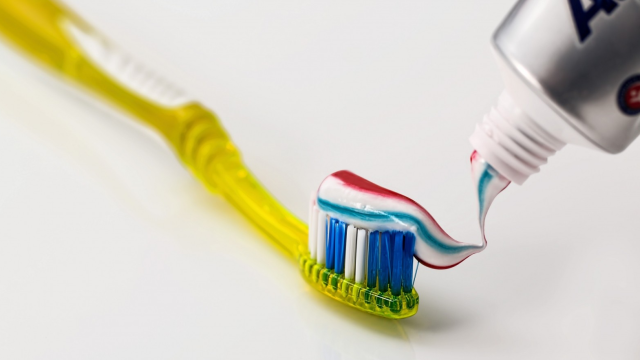Natural toothpastes sound like they should be healthier than your standard Colgate, but it turns out their ingredients are basically the same. A breakdown from Science-Based Medicine helps sort it all out.
Photo via VisualHunt.
The main benefit of brushing, dentist Grant Richey writes, is the brushing itself: “[T]he brand or type of toothpaste is secondary to the importance of actually using your toothbrush properly and for the correct amount of time.”
Pretty much all toothpastes, including the natural ones, contain four things:
- Abrasives to help scrub the plaque away
- Flavouring, usually with artificial sweeteners
- Humectants to give it a gel-like consistency
- Detergents to make it foam up
Most regular toothpastes have fluoride, which helps to strengthen your teeth, and some have ingredients for tartar control. These are nice extras, but they don’t make or break the main function of cleaning your teeth.
Natural toothpastes tend to have the same four basic ingredients, although they may skip the fluoride and they may add other ingredients, like lemon oil or charcoal, that likewise make very little difference to how clean your teeth actually end up. Check out the link below to learn more about what’s in your toothpaste.
What’s in That Tube? [Science-Based Medicine]

Comments
2 responses to “What’s The Difference Between ‘Natural’ And Regular Toothpastes?”
To quote the great South Park:
On a side note, does it actually make a difference whether you rinse your mouth out with water after brushing your teeth or not?
If you use a fluoride toothpaste, then it’s better not to rinse (do spit out excess). That way the fluoride keeps on working on your teeth.